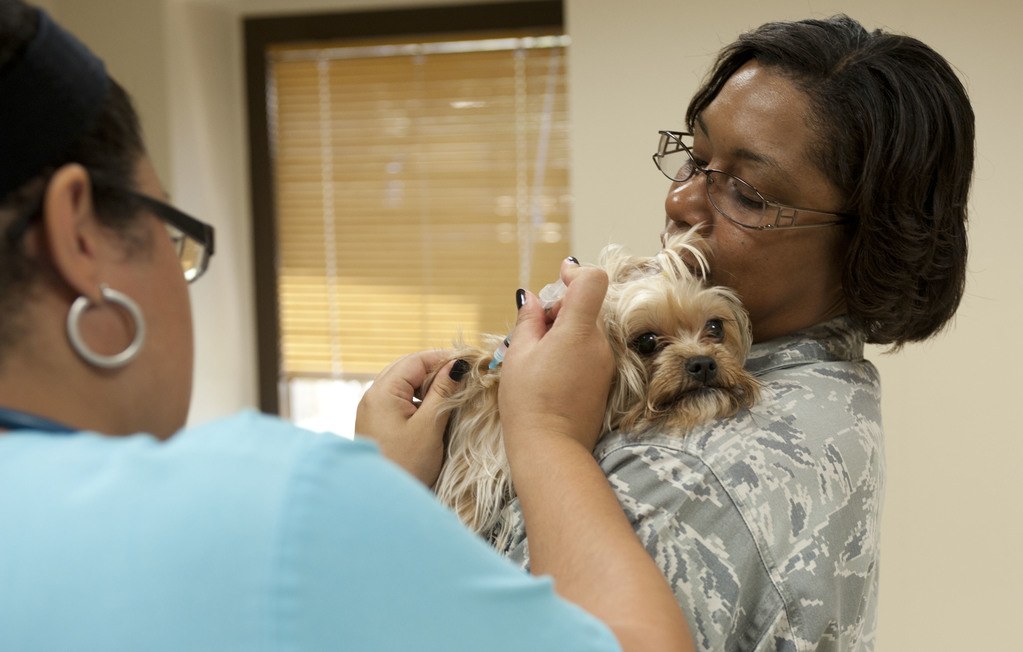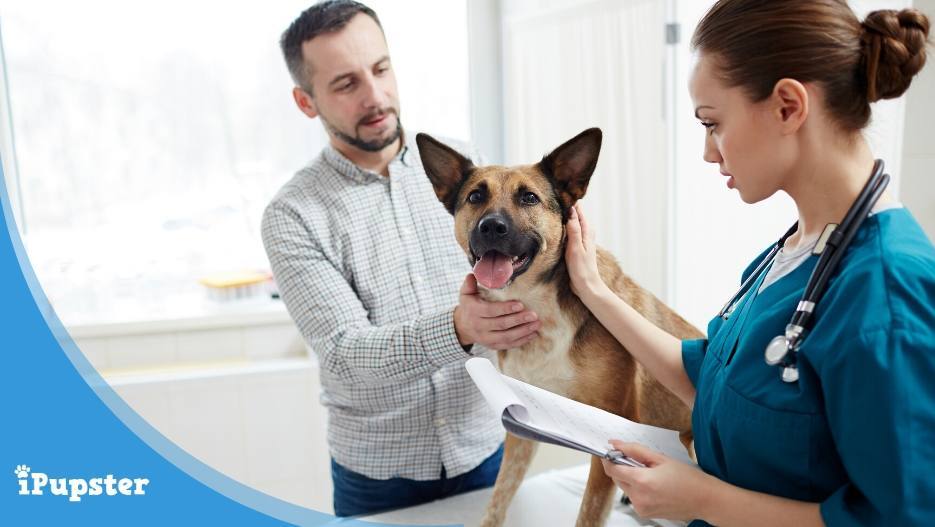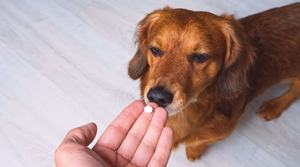
Reviewed & Fact-Checked by
Dr. Chyrle Bonk
Veterinarian (DVM)
Learn more about our Veterinary Review Board »
Hypoglycemia is something talked about in terms of human health a great deal. But the fact is that this condition can affect your pet dog too, and for many reasons.
What is Hypoglycemia?
Hypoglycemia is the medical term used to describe low levels of glucose in the blood.
What is the difference between hyperglycemia and hypoglycemia?
Hyperglycemia occurs when blood sugar levels are too high. Hypoglycemia sets in when blood sugar levels are too low.
Some people confuse it with diabetes, but while the two are often associated with each other they aren't the same thing. In diabetic dogs, low blood sugar is usually a sign that something is off with their medication.
The reason low blood sugar in dogs - and other mammals including humans - is a problem is that all of the cells in the body needs sugar to create the energy to 'power' all kinds of critical bodily functions.
But low blood sugar is about more than just feeling tired and lethargic.
The brain needs sugar in the form of glucose to function. It cannot produce it by itself and so it needs to be carried there in the blood.
Without adequate amounts of glucose (min. 70 milligrams per deciliter (mg/dL)) the brain can rapidly lose its ability to function as it should. Brain damage and even death can occur, both in dogs and humans.
What Causes Hypoglycemia in Dogs?

Obesity in pets can lead to a variety of health problems including diabetes mellitus. Hypoglycemia is most common in dogs with diabetes.
As previously mentioned, hypoglycemia is a condition or event, not a disease in itself. As such a number of underlying health problems can cause it occur. In dogs, these include liver and kidney disease, inadequate diet, malnutrition,exertion, hormone deficiencies and, in rare cases, pancreatic tumors.
In particular, if a small breed dog does not have a high enough caloric intake they can develop hypoglycemia which can lead to lethargy, seizures, shaking and tremors.
One note: studies have recently been able to link excessive consumption of xylitol to canine hypoglycemia. Xylitol is an artificial sweetener used in many human products including gum, so keeping your pup away from those is a must.
By far the most common cause of hypoglycemia in dogs, however, is poorly managed diabetes and excessive insulin consumption.
Dogs with the highest risk of developing diabetes include: Keeshonds, Pulis, Cairn Terriers, Miniature Pinschers, Poodles, Samoyeds, Australian Terriers, Schnauzers, Fox Terriers, Siberian Huskies, Bichon Frises, and Spitz dogs.
Insulin is used in diabetic patients - humans and animals - to regulate the blood sugar. This has to be very carefully measured and monitored, as giving a diabetic dog too much insulin can cause the body to remove too much insulin from the blood, leading to hypoglycemia.
"Another major contributor to hypoglycemia in diabetic dogs is giving insulin without a meal first. Insulin treatments need to be given perfectly timed with a meal. This is to make sure there is enough blood sugar available for the insulin to work on so that blood glucose levels don’t get too low."
Dr. Chyrle Bonk, DVM
What are the Signs of Hypoglycemia in Dogs?
There are a number of visible signs that a pup's blood sugar is too low, including the following:
- Not eating
- Shaking and tremors
- Lethargy
- Apparent confusion
- Incoordination
- Apparent anxiety
- Loss of consciousness
- Seizures
Dogs with hypoglycemia may show any of these signs or they might not show any signs at all. It’s also important to remember that these signs can also be related to a number of other medical problems, especially in a pup that has not been diagnosed as diabetic. So, if you notice any of them, you should seek veterinary attention.
How is Hypoglycemia in Dogs Diagnosed?
Hypoglycemia is usually a straightforward diagnosis when you pup is having an episode. Blood sugar levels can be assessed using blood or urine tests.
What is less straightforward is determining why the episode has occurred. In dogs who are not diabetic this can lead to lots of tests, including CT scans of the organs to try to determine the underlying cause.
In pups already diagnosed as diabetes, your vet will need to determine the proper insulin dosage and timing. However, the first order of business has to be restoring normal blood sugar levels as quickly as possible before brain damage occurs.
Treatment of Hypoglycemia in Dogs

The initial treatment for hypoglycemia depends on what symptoms you dog is experiencing. (U.S. Air Force photo by Airman 1st Class Clayton Lenhardt/Released)
In the short term, blood sugar levels may be increased by giving the dog corn syrup or honey on their gums. More severe cases will need veterinary treatment and intravenous dextrose.
Once blood sugar levels have been restored to normal, the underlying cause of the episode has to be addressed. In non-diabetic dogs this can be complicated and may call for weeks of testing and treatments. It's hard to generalize however as the causes and treatments vary widely.
In diabetic dogs the reasons for the episode of hypoglycemia will need to be discussed, and their treatment plan reviewed.
Pet parents may also need to become better educated about how best to monitor and manage their pup's diabetes and in some cases medications may need to be changed.
However, as every dog's experience of diabetes is unique it will be up to your vet to make those decisions.
Costs of Treating Canine Hypoglycemia and Diabetes
In the case of dogs whose hypoglycemia episode is not caused by diabetes management issues then it is hard to estimate just how much the treatment of it might cost.
You can expect to pay for an urgent vet visit, as well as for the cost of blood work and a urinalysis. This may cost, somewhere between $200 and $500. Any further costs for treatment will depend on how an underlying cause is to be treated.
Pet parents of diabetic dogs already know that there are monthly costs to be met for their pup to keep them healthy. They need to see the vet more often than some other pups as their condition, and their medication, need to be monitored.
If they take their pup to the vet to treat a hypoglycemic episode then they can expect to pay somewhere between $150 and $200, depending on their vet's fee schedule and any other treatment needed.
Recovery and Prevention
Hypoglycemia itself can be managed with proper diet and, in the case of diabetic dogs, the proper dosage and timing of their medication. Obesity indogs is a risk factor for many problems, including hypoglycemia, so weight management is a must in general anyway.
Here are a few tips to help your pet lose the extra weight.
- Keep track of the weight by regularly checking it.
- Always use a measure food with a cup, don't free feed.
- Feed at specific meal times
- Eliminate treats
- Increase exercise
- Consider interactive toys, especially for dogs that stay indoors most of the time
Knowing the early signs of hypoglycemia and how to prevent it are important when taking care of a diabetic pup. The good news is that with careful diet and medication management lots of pups live healthy, happy lives with diabetes, as long as they have lots of help from their humans and their vet.
In the case of diabetic dogs, the optimal diet is either a high complex carbohydrate–low protein diet or a high protein–low carbohydrate diet. Here are the basic considerations when choosing a diet for a diabetic dog.
- Choose complex carbs over simple carbs and keep it to <55% dry matter
- Fiber should be kept between: 7% to 18%
- Protein should be highly-digestible and a high-quality protein is recommended. Keep proteins between <15% to 35% dry matter.
- Fats should be <25% dry matter
Here are some recommended diabetic dog food options to consider. However, before making changes to your dog’s diet, it's important to consult your vet to make sure they are getting the appropriate nutrition for the stage of diabetes they are at.
- Royal Canin Veterinary Diet Glycobalance Formula Dry Dog Food [High levels of soluble and insoluble fiber and reduced fat levels] - available online at Chewy.
- Zignature Lamb Limited Ingredient Formula Grain-Free Dry Dog Food [Another great kibble] - available online on Amazon.
- Hill's Science Diet W/D [Comes in dry or canned] - available online at Chewy.




